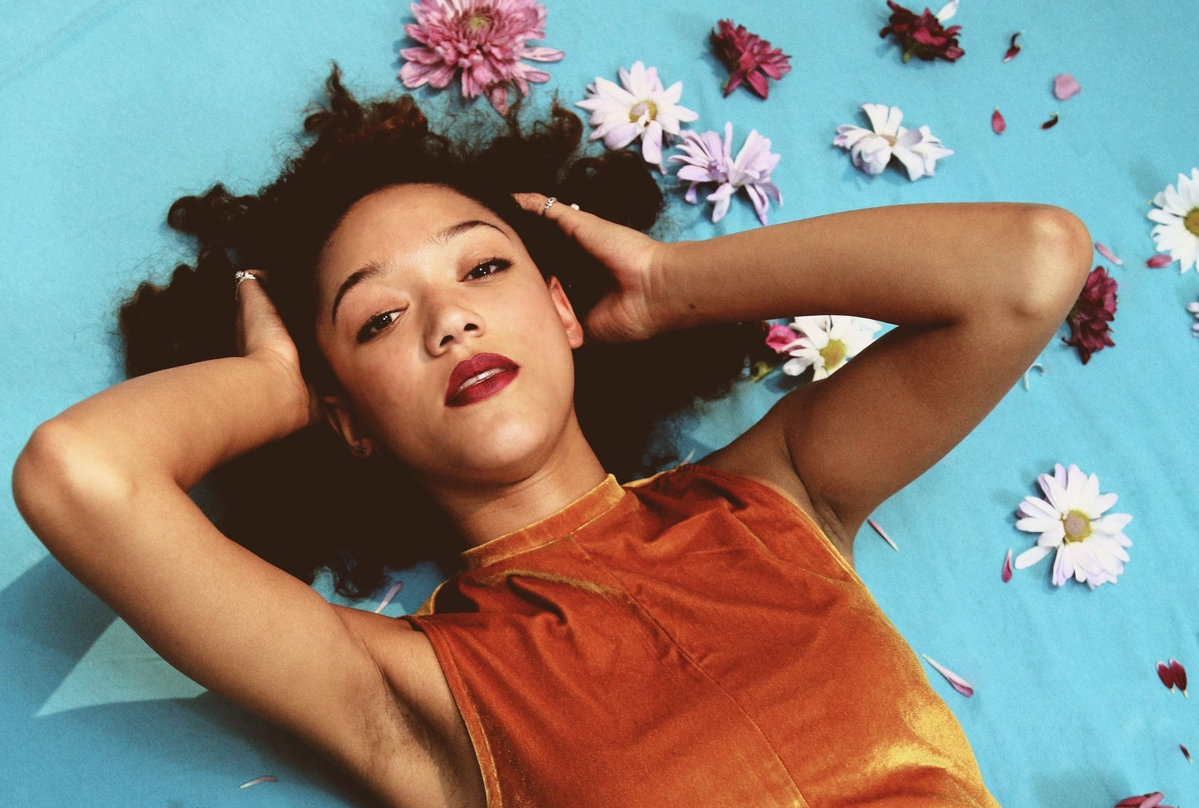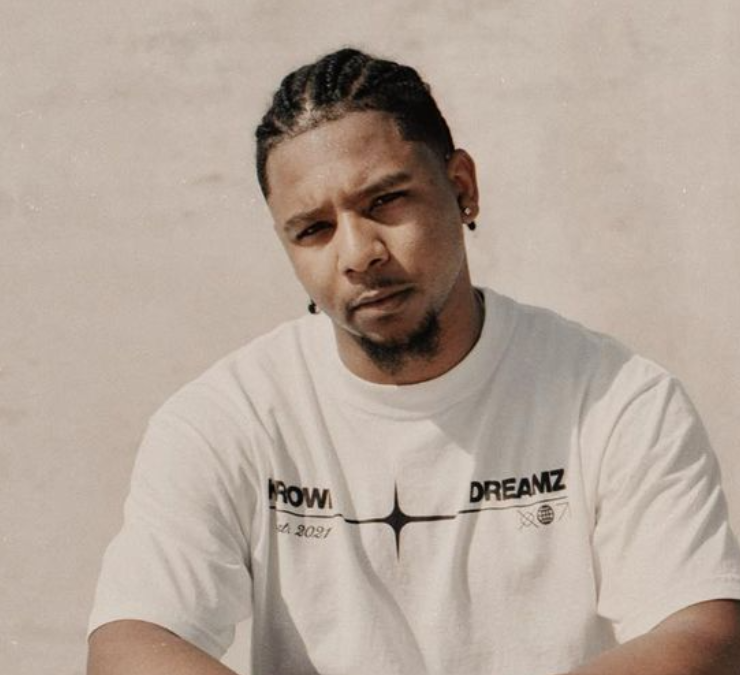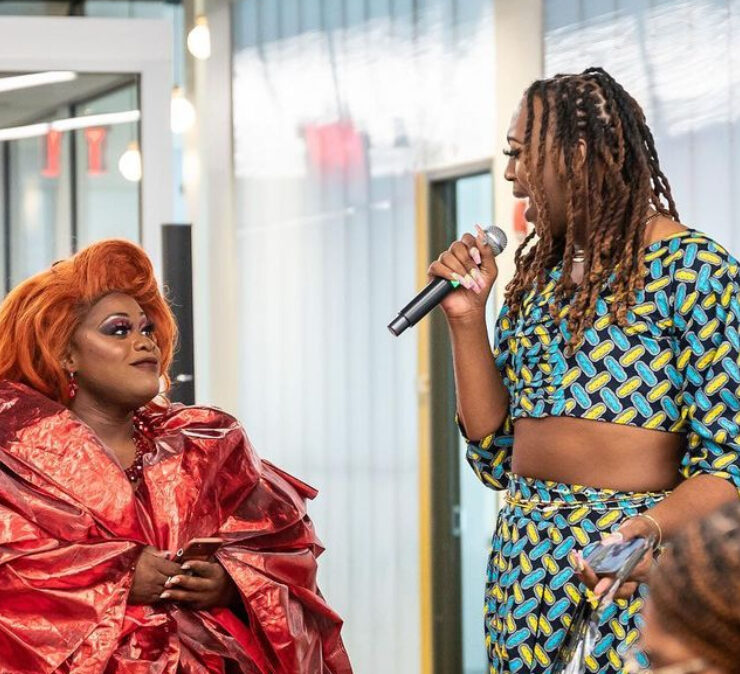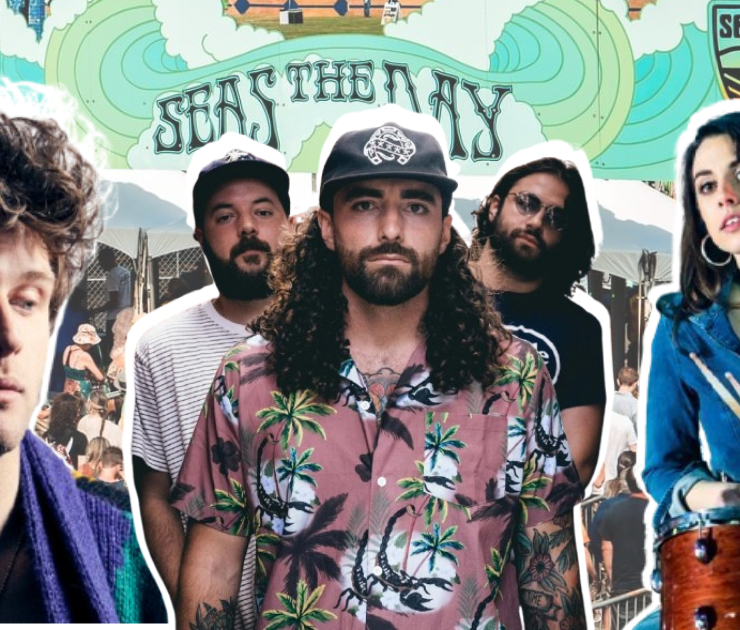Western Massachusetts-based recording artist Kimaya Diggs kicked down the door to the folk music scene following the release of her 2019 debut album, Breastfed (via Signature Sounds Recording). With a self-described acrobatic voice and longingly smooth guitar skills, Diggs weaves webs of colorful yet heartfelt stories. Her buttery tone paired with her tender delivery transform tunes about heartbreak, power, and everything in between into wide-ranging emotional anthems.
I had the chance to catch up with the singer as she’s working on her upcoming sophomore album, what the creative process looks like in the midst of COVID-19, the political climate, and much more. Read the full interview below!
When did your love for music first develop and what artists have greatly inspired and influenced you on that path?
“I have been singing for my whole life – singing has been the core of who I am since I was born. I loved show tunes, opera, and the earthy songstresses of the early 2000s. A shortlist of songs that totally changed my life as a youngster: Thank You by Dido, Put Your Records On by Corinne Bailey Rae, Don’t Know Why by Norah Jones, Strength Courage & Wisdom and Video by India.Arie! Those songs are so dear to me because the voice and the story are the focus.”
If you pulled out your phone right now and went to your latest playlist, what would I find on it?
“Lianne LaHavas, Jay Som, D’Angelo, Gillian Welch, Lizzo, John Coltrane, Molly Drake, Ari Lennox, Eartha Kitt!”
Tell us a bit about your debut album “Breastfed”, what was the creative process like for you?
“My husband Jacob and I recorded it together in his band’s studio. He had a lot of experience recording himself with his band LuxDeluxe, while I had never done it before. I’m really proud of Breastfed but I’m feeling much more steady on my feet while working on my new record. Breastfed involved a lot of improvising, a lot of building the songs up from just guitar and voice, and seeing what they became. The record I’m working on now has been more meticulously planned and arranged, and I’m really enjoying the contrast in [the] process! There’s so much good in planning, and so much good in going with the flow – I aim to find a good balance between the two, to let the songs come into fullness in the way they need to, while also having a vision for them from the start.”
Let’s talk about what new projects we have to look forward to from you. What can you tell readers about what you’re working on and the inspiration behind it?
“I’m working on a new record that I’m very excited about! The new record was written with a full band in mind (as opposed to Breastfed, which was very much a singer-songwriter project). While writing it, I’ve been thinking a lot about clarifying the narratives within my songs – not being afraid to say something directly, not being afraid to show my anger and my sadness, and moving boldly towards a version of myself that is more powerful and more vulnerable than ever. I’m really enjoying the process, taking my time, being intentional with the parts I write, and learning to be more self-reliant. For a little sneak peek, here are acoustic versions of two of the songs on the new record:”
How has the global health crisis and the current political climate affected your art?
“The idea of live performance being changed forever is shattering. I know that things will go back to normal – they always do, and humans are so resilient and flexible – but it’s impossible to picture what the in-between times look like, and that’s really hard. I haven’t been able to perform live, of course, but I’ve been working on other projects that allow me to perform in other ways.”
“With the current civil rights movement, I have been called upon by many organizations to do online or outdoor shows, and it’s a bittersweet feeling. I’m happy to get booked, but I know I’m being booked because I’m a Black artist during a time when local organizations need to prove that they care about Black people. And then they say they can’t pay me, or can’t pay me equitably because times are hard for arts organizations. These are places I’ve struggled to get booked in the past, and it makes me wonder if I’ll have the same issue when things go back to normal. It’s a strange feeling to (finally) be given a seat at the table, and then not know if I’m about to be kicked out in a few months.”
It’s been said that as a musician, one must figure out what unique identity you want to project and then ruthlessly project it. Do you feel as though that’s true? If so, have you found that identity?
“I think of it a little differently – I definitely grew up with lots of people telling me I needed to find my ‘thing’ if I wanted to stand out in the world of music, but I never felt good about crafting a performative identity for myself. If I’m ruthless in any area, it’s that I don’t let myself off the hook – if I feel uncomfortable as I grow as a musician, I don’t give myself the option of turning back or giving up. I’m a hard worker, and while that’s not everything, it’s something that forces me to continue growing. I’m honest with myself, and with my audience, and that’s really all I can hope to be.”
While awaiting Kimaya Diggs’ new release, stream her debut album Breastfed HERE.
Have you listened to Kimaya Diggs? If so, let us know what you think below in the comment section. To keep up with Kimaya follow her across your favorite social media platforms including Instagram, Facebook, and Twitter.







